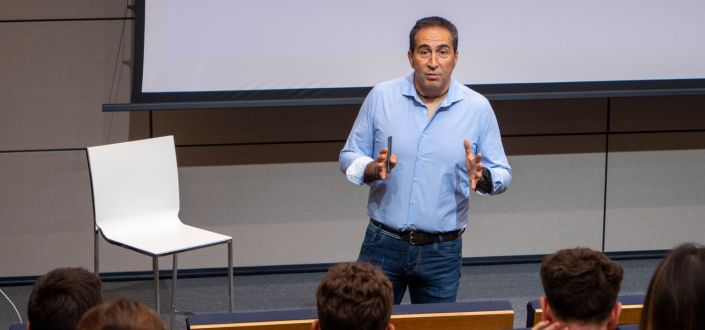On Tuesday 18 November at the European University of the Atlantic (UNEATLANTICO) a talk was given by Guillermo Barros, delegate of the Tax Office in Cantabria. The colloquium, aimed at the university community, focused on civic-tax education and sought to convey the fundamental message that the payment of taxes is the pillar of the financing of collective needs and the welfare state, as well as explaining clearly how the Spanish tax system works.
During the session, it was recalled that civic-tax education is, above all, an education of public values: the payment of taxes implies rights, but also obligations of control and assistance. Emphasis was placed on the importance of distinguishing individual money from resources supported by public services. Barros used the example of a community of neighbors, where the payment of common expenses is necessary for maintenance as a small-scale analogy of the state, which must also meet needs shared by all its citizens.
The delegate of the Tax Office recalled that its mission is to enforce the constitutional principle of fair contribution, while promoting social awareness through information campaigns, educational programs and tools. According to Barros, the objective is to apply the tax system in accordance with the constitutional principle that we must all contribute to support social needs according to our economic capacity.
In Cantabria, educational campaigns are aimed at young people, businesses and individuals with initiatives in colleges and universities that seek to explain the role of taxes from a perspective understandable for all ages.
As Barros recalled at the end of his speech, “taxation is not only a legal obligation: it is an act of civic responsibility”. With this talk, UNEATLANTICO reinforces its commitment to train citizens aware of their tax and social responsibilities.


